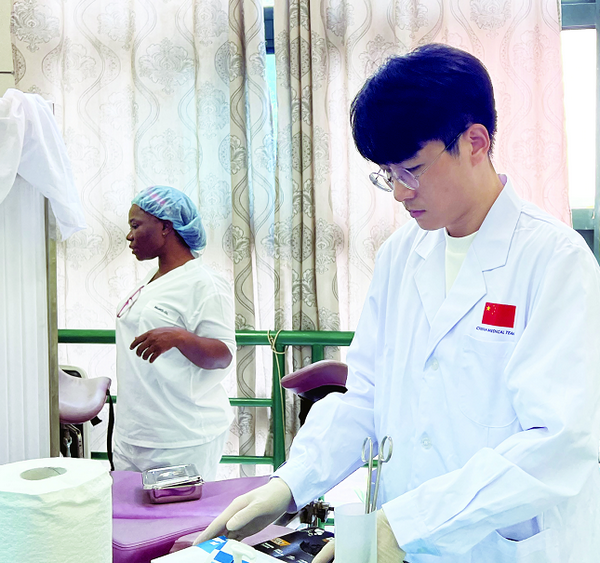

The lack of comprehensive sex education in Chinese schools is also a concern for Tian. As our society still sees sex-related topics as taboo, he noted, many young people neither have sufficient scientific knowledge to protect themselves from sexually transmitted diseases nor know the differences between various birth control methods.
"Often, it's not having the right information that causes problems," said Tian. "People need to be aware that there is a difference between sex education and eroticism."
Before his journey to Sierra Leone, Tian had just returned from a medical mission to rural areas of Zhangjiajie, Hunan province, where he was part of a team of 17 doctors.
The medical situation in Zhangjiajie is much better than that of Sierra Leone, but local people's limited medical understanding still prevents them from seeking professional help when facing health problems. Too busy with agricultural work and raising children, women there often overlook their own well-being, which unfortunately results in delays for timely treatment.
"It's important for people to deepen their understanding of healthcare and make their health a priority. Otherwise, there could be serious consequences," said Tian.
The medical team dispatchment to Zhangjiajie was, in fact, part of China's poverty alleviation initiative. Some people may view poverty alleviation as mainly focusing on economic development and having little to do with medical issues, but Tian doesn't see it that way.
"A healthy population is crucial for rural development," he said. "In these villages, if someone faces a serious disease like cervical cancer, it can quickly devastate the whole family. And there will be no point in talking about prosperity."
In 2020, the World Health Organization set a target to eliminate cervical cancer by 2030. As an active advocate and practitioner of South-South cooperation, China is dedicated not only to achieving this goal domestically but also to aiding other countries in achieving it.
This year marks the 60th anniversary of China dispatching medical teams to other parts of the world. Since the first medical team was sent to Algeria in 1963, China has so far sent 30,000 medical professionals to 76 countries and regions, treating 290 million patients worldwide.
However, sending medical practitioners alone is not enough. According to Tian, their efforts in Sierra Leone were more than just providing direct medical care for patients. They were equally dedicated to knowledge transfer, training local healthcare workers in the latest techniques so that they could conduct cervical cancer screenings independently. Tian's team is also arranging for local doctors to visit China for brief training sessions.
"Teaching someone to fish is better than simply giving them a fish. This is precisely what we've been doing," said Tian.
Contact the writer at chenxue@i21st.cn